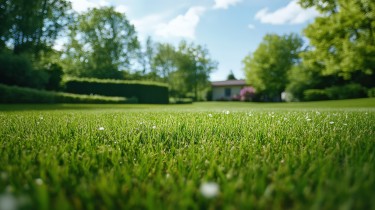

Discover the Secret to a Lush and Healthy Lawn
Read More ›
Blog
Strategies for a neat and weed-free landscape.
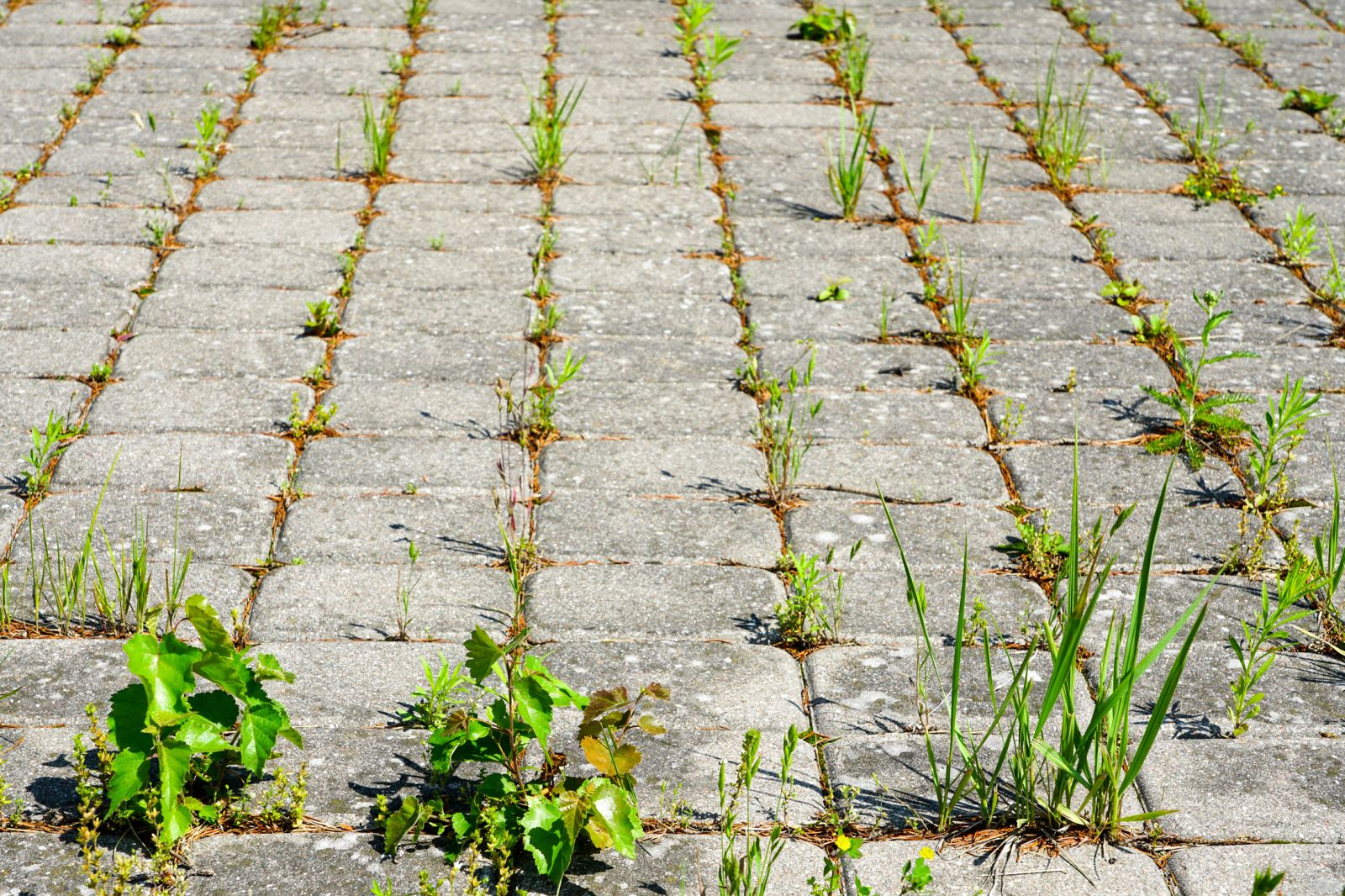
In addition to looking unsightly, weeds in paved areas can exert pressure on pavement surfaces, causing cracks to widen, potentially leading to expensive repairs or replacement. If left unchecked, these weeds can also spread to adjacent garden beds, lawns or other landscaped areas, increasing the amount of time you’ll spend maintaining them.
In this post, we’ll share some of the ways to effectively deal with these hardy weeds without excessive work or damaging your surrounding landscape.
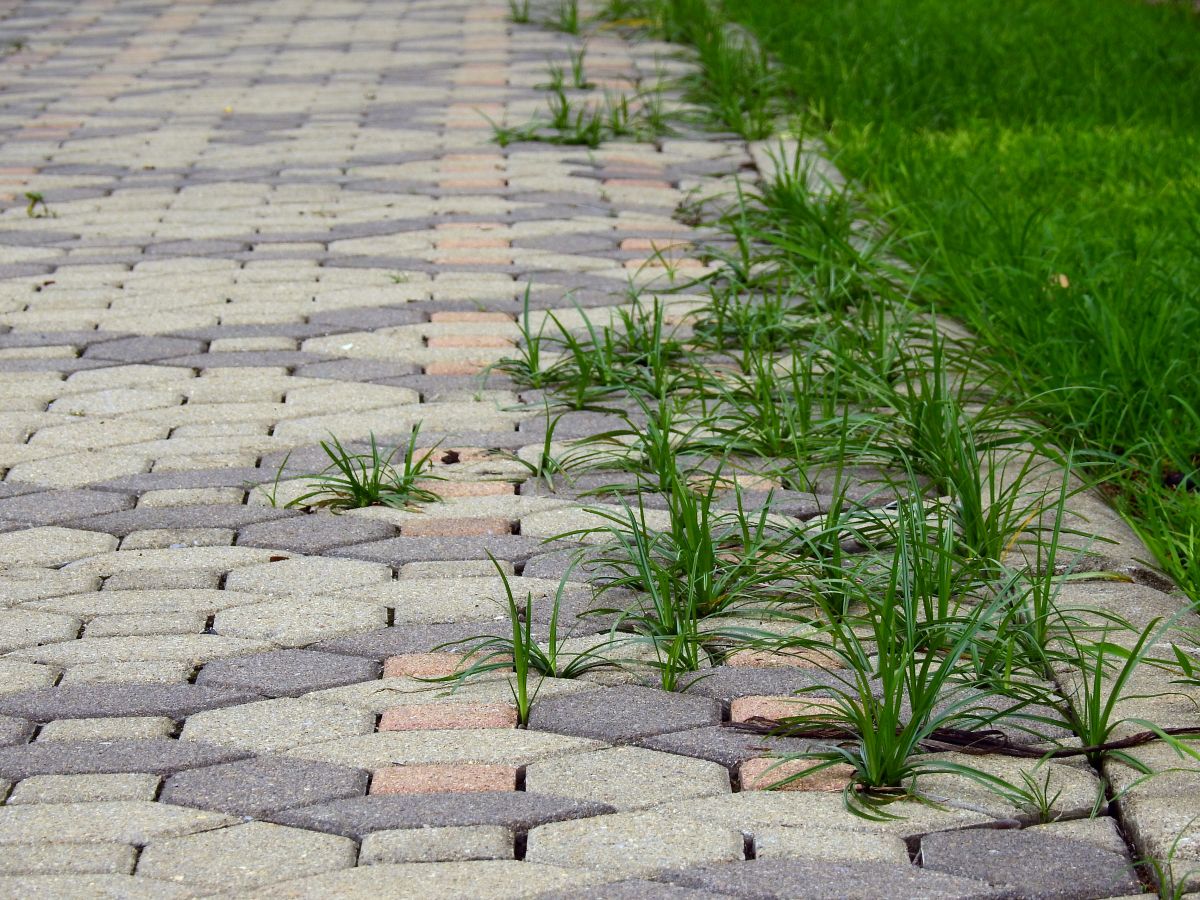
This might sound like a silly question, as we all recognize certain weeds when we see them, such as dandelions or thistles. But it’s more complex than that. In general, a weed is a plant that grows where it’s not wanted. There are some beautiful plants that are considered weeds because of their invasive nature, such as purple loosestrife.
The problem with these plants is they’re so hardy they compete with desired plants for resources such as sunlight, water and nutrients, and they generally win.
Some common weeds found in pavement in Northern Virginia include plantain, chickweed, purslane, crabgrass, dandelion and ground ivy, among others.
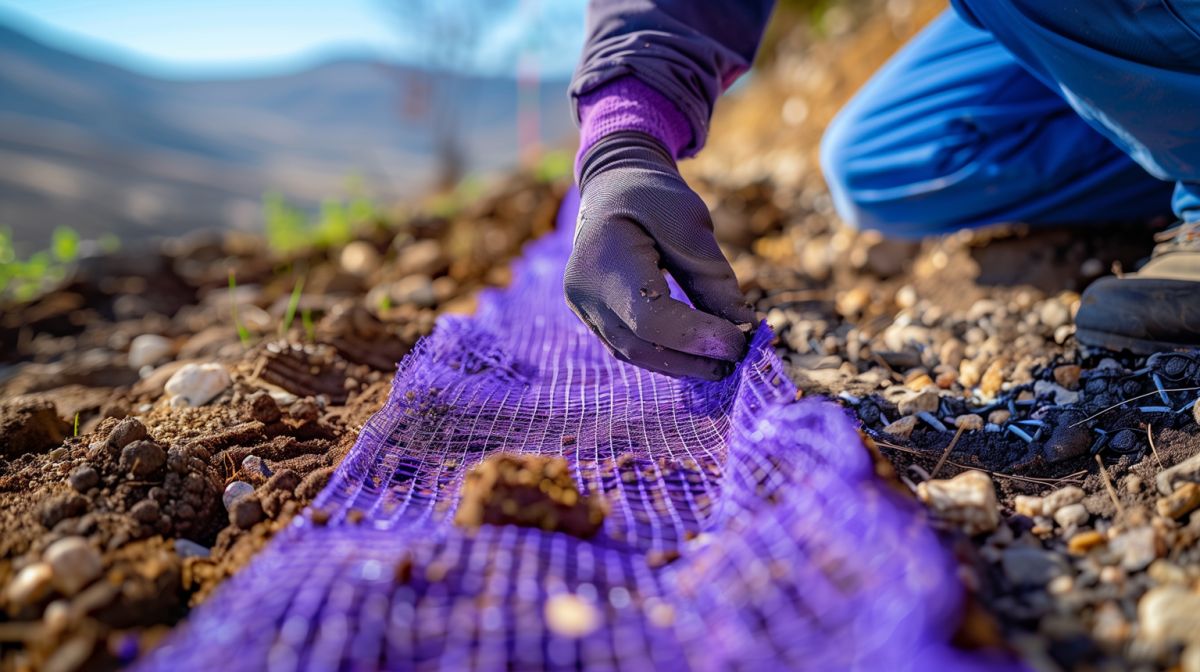
Contrary to popular belief, landscape fabric won’t protect your paved surfaces from sprouting weeds. Most weeds get to your garden or paved areas through the air, so any soil on top of the landscape fabric will give the weed seeds a place to germinate — and their roots are tough enough to penetrate the landscape fabric below, making them more difficult to remove.
Weeds and grasses that thrive in pavement cracks are genetically well-adapted to the conditions created by concrete, brick or asphalt paving. So in order to win the war against them, you will have to be vigilant.
Kill weeds with boiling water — Instead of pouring the boiling water you used to cook your veggies down the drain, take it outside and pour it over your weeds. Be patient. If the weeds are especially stubborn, it could take a few applications to effectively kill them. Once they’re dead, remove them, clean the crack and fill it with caulk.
Make sure not to use water with oil or meat residue, as it could attract pests, such as mice or other rodents.
The salt & vinegar solution — A cup of salt mixed with a gallon of vinegar (at least 5% acetic acid or higher) is an effective weed killer. However, it will also kill desirable plants, so only use in areas where runoff won’t be a problem.
Chemical weed killers — If other methods fail, spot-treating grasses and weeds with a weed-killer containing glyphosate — such as Roundup — can be used as a last resort. It will effectively kill the plant right down to the roots, but take care not to get the spray on desirable plants, wear a face mask and gloves and follow the directions carefully.
Whatever method you choose, we don’t recommend hand pulling weeds located in the hard surfaces because it’s difficult to get the entire root out. Fragments of the weeds left behind after pulling will still grow and multiply, creating a bigger mess than before. The effective method is to spot spraying them, which destroys their entire root system.
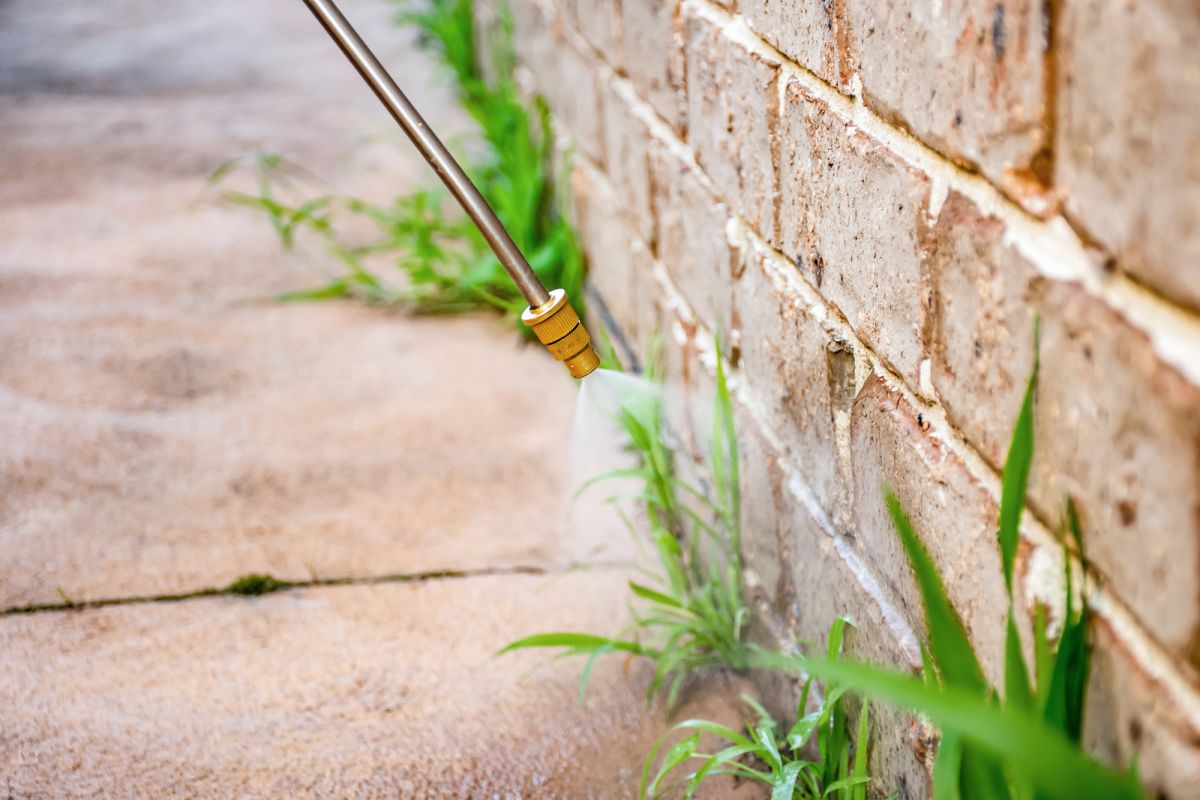
Hard surface vegetation management is part of our Garden Care program, so you won’t have to worry about weeds cracking your paved surfaces and ruining them or making your property look unsightly.
Other services in the Garden Care program are designed to keep your gardens looking their best all year long, and include:
If you have questions about weed control or are interested in our services, give us a call or book a consultation and we’d be happy to help.
Written by Brandon Rushing, Founder & President
Posted on: May 29th, 2024